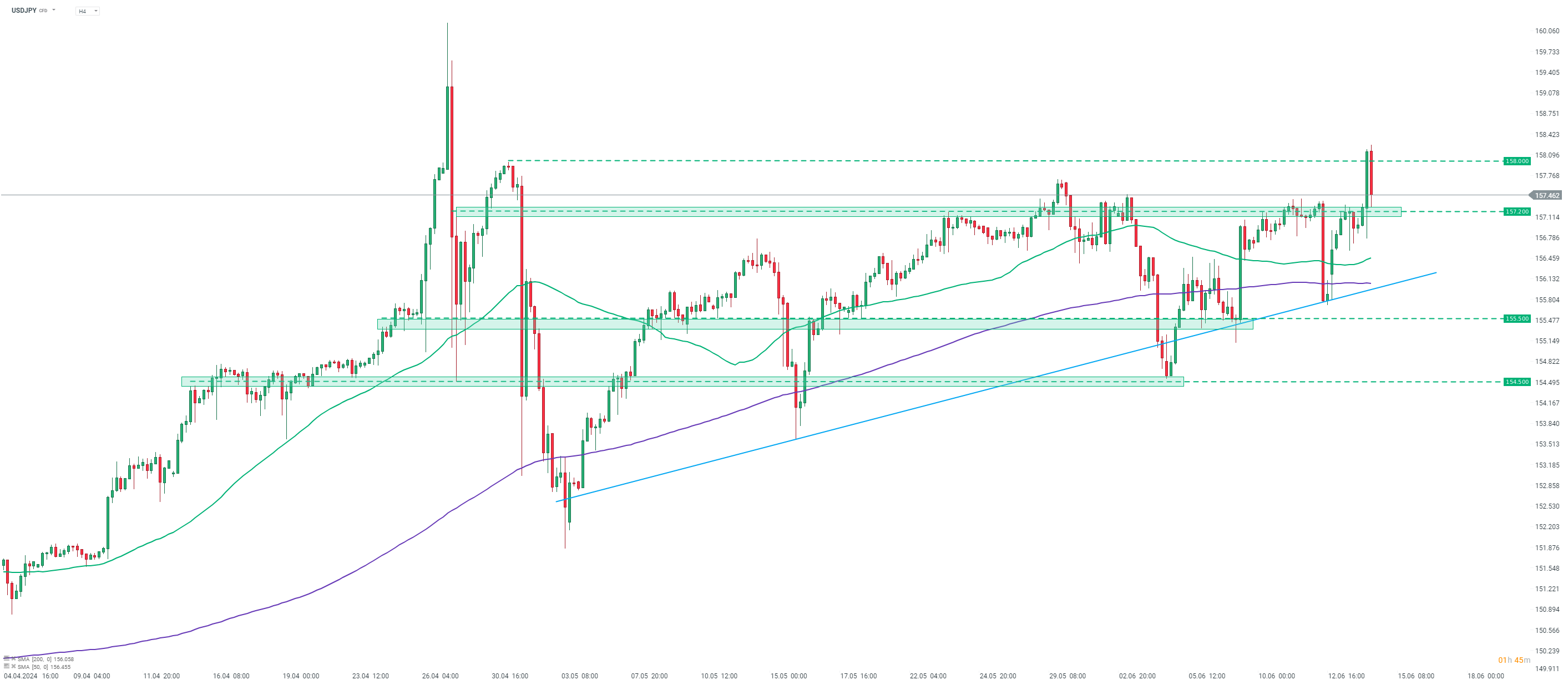Bank of Japan meeting was a big event of today's Asia-Pacific session. Japanese central bank kept interest rates unchanged in the 0.00-0.10% range, in-line with market expectations. However, decision on bond purchases came as a surprise. Bank was widely expected to reduce pace of bond purchases, but instead decided to keep this pace unchanged. This was a big dovish surprise, especially as the Bank failed to provide a timeline.While the Bank of Japan has clearly communicated that it will discuss and decide on a bond purchase reduction plan on the next meeting, it was not enough to appease investors, who rushed to sell Japanese yen. BoJ Governor Ueda did not explicitly rule out July rate hike and said that it will depend on the incoming data, but decision to delay launch of bond purchases reduction to July makes it less likely that BoJ will decide to cut rates next month. Money markets saw an over-60% chance of BoJ delivering 10 basis point rate hike at July meeting yesterday, but now those odds dropped to less than 50%.
USDJPY jumped above 158.00 mark in response to Bank of Japan policy announcement today, and traded at the highest level since late-April 2024. However, pair trimmed some gains after BoJ Governor Ueda said during press-conference that short-term rates will be the main policy tool and did not rule out a July hike.
 Source: xStation5
Source: xStation5

Daily Summary - Powerful NFP report could delay Fed rate cuts

Daily summary: Weak US data drags markets down, precious metals under pressure again!

BREAKING: US RETAIL SALES BELOW EXPECTATIONS

Takaichi’s party wins elections in Japan – a return of debt concerns? 💰✂️


